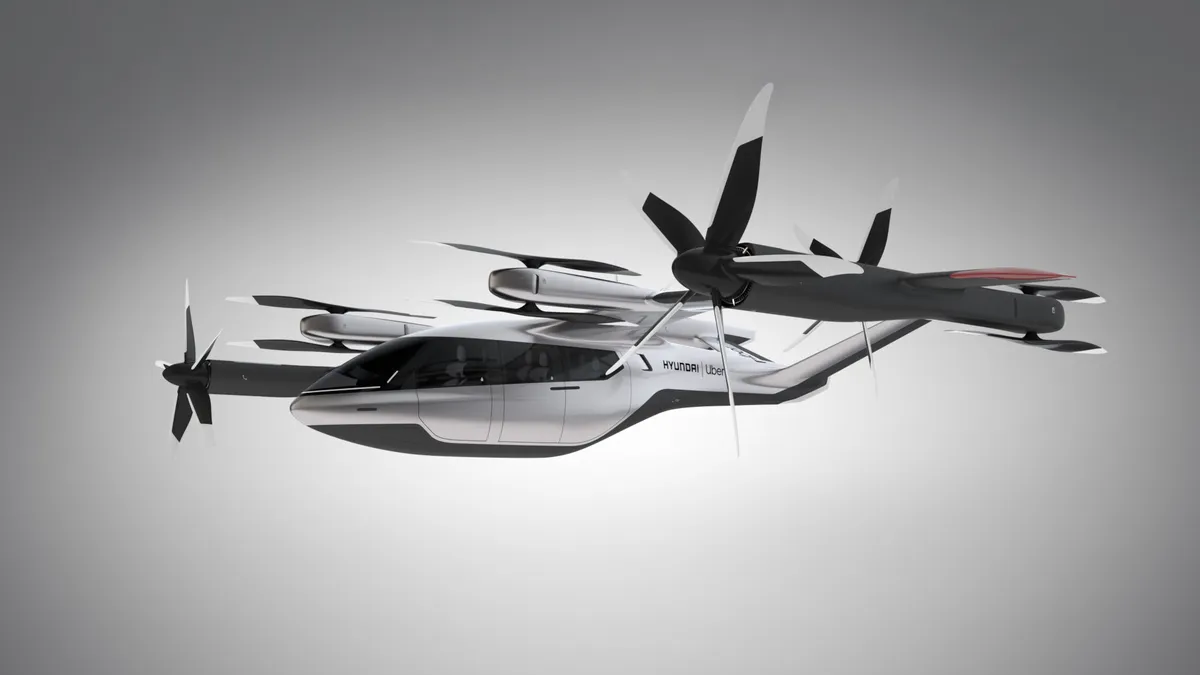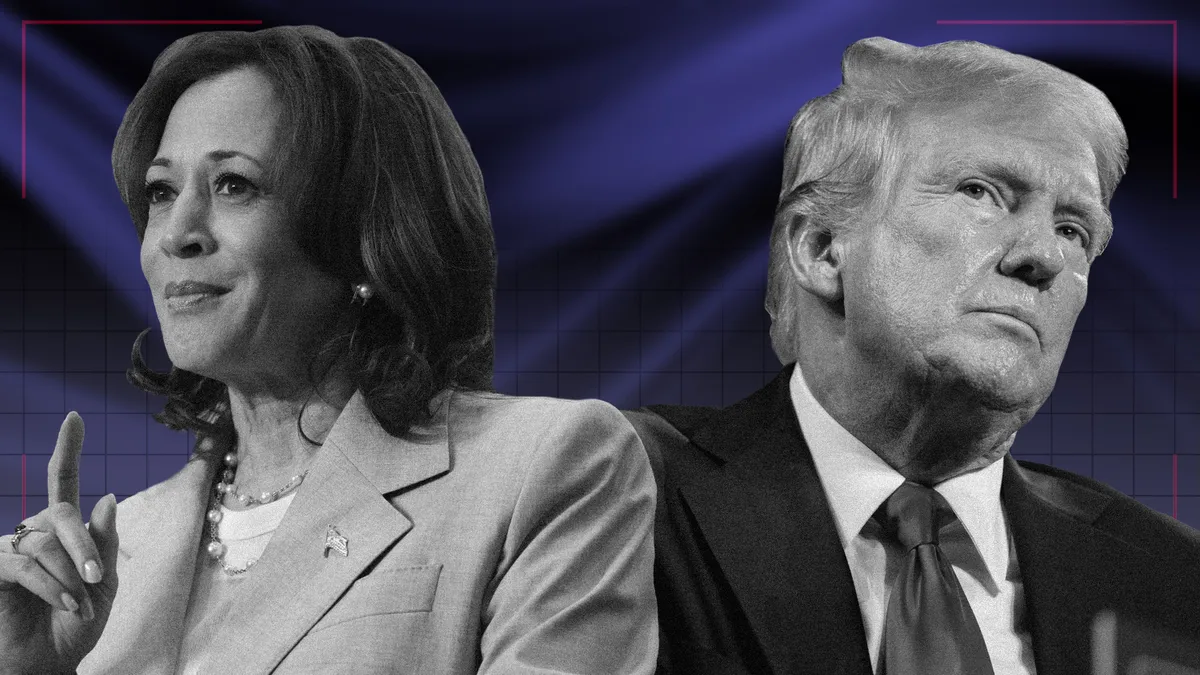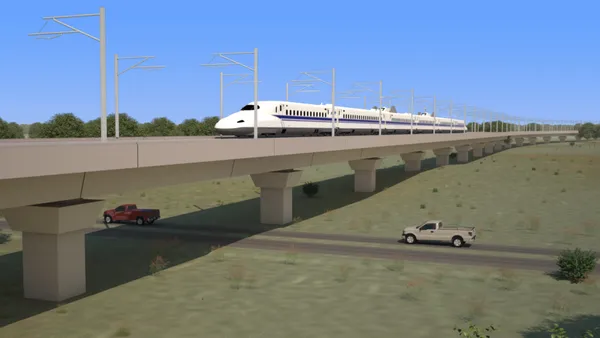Dive Brief:
- Hyundai and Uber will collaborate on an electric air taxi service, the two companies announced at CES in Las Vegas earlier this week. Through the partnership, Hyundai will design and manufacture the electric vehicle as part of Uber’s Elevate program.
- A concept electric vertical take-off and landing (eVTOL) vehicle unveiled at the technology show would seat up to four passengers with a pilot and fly up to 60 miles in a single trip. The 100% electric vehicle would also be designed to eventually fly autonomously.
- It’s unclear when the much-hyped technology would come to market. Uber has said it wants to have its Elevate service running by 2023, although Hyundai executive vice chairman Euisun Chung told Reuters that commercialization is more likely by 2028.
Dive Insight:
Tech and mobility companies have increasingly hyped the potential of aerial taxi services as a way to get passengers out of congested urban centers. Some 130 companies are active in various sectors of the flying car space, whether it’s designing aircraft technology or working on airspace plans. Uber has emerged as a key player, with plans to test its air taxi service in Los Angeles, Dallas and Melbourne, Australia and its first helipad site being built in Frisco, TX.
In a statement, Uber Elevate head Eric Allison said the partnership represented a "giant leap forward for launching a vibrant air taxi network in the coming years." Adding Hyundai brings additional credibility to the project by including a company with decades of experience designing and manufacturing vehicles, said University of Houston engineering professor Kaushik Rajashekara, who has written about the prospect of aerial cars.
"A major manufacturer like Hyundai can manufacture at a lower cost and use technology that’s been developed over a long time," Rajashekara told Smart Cities Dive in an interview. "Uber knows about how to use it, Hyundai is very well known for their knowledge on the technology around electric batteries, electric motors, hybrid vehicles. This is a very good combination."
Hyundai’s concept vehicle shows the technological promise of the flying taxis. The electric motor would take just five to seven minutes to recharge, the company says, and it could travel up to 180 miles per hour as high as 2,000 feet. The vehicle would use electric propulsion to power multiple rotors and propellors, making it more safe and reducing noise compared to large rotor helicopters.
Other automakers have taken their own steps to flying taxis, including Porsche, which announced a partnership with Boeing in October. Actually getting the technology to passengers will require significant regulatory work, including changes to building codes, airspace regulations and safety rules. Still, the involvement of traditional automakers — and their manufacturing power — means there is momentum behind the idea.










